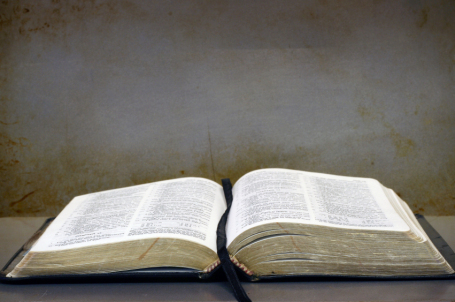“Biblical Christianity” has a semantics problem

A friend shared the following article on Facebook: The Scandal of Biblical Illiteracy: It’s Our Problem. I do agree with its main premise that Christians perhaps aren’t doing so well in their efforts to educate their own (I did laugh at the anecdote that apparently some people really think Joan of Arc was Noah’s wife). What the writer, Albert Mohler, doesn’t mention is the diverse explanation of the term “biblical Christianity.” This term is taken as a given in many churches, and it’s assumed to be understood and agreed upon by all.
There are plenty of other points I could comment on throughout his piece, but the nondescript use of “biblical Christianity” immediately lost me. If it said “evangelical Christianity” or “Anglican Christianity,” that would be a different story. But history shows there is not and has never been a singular Christianity.
Since evangelicalism is the Christianity of choice in American culture, I’ll assume he’s referring to that one for the purpose of this post.
Yes, it’s problematic that self-proclaimed Christians can’t name all four gospels or half of the Ten Commandments (actually, I should probably brush up on those). However, I think I’m part of the target audience that Mohler desperately wants to reach. I’m one of those millennial Christians surrounded by liberal, progressive ideas like feminism and marriage equality. I’m part of that generation being encouraged to view the Bible as an archaic book with archaic ideas that have no relevance to 21st-century life.
Clearly I can’t speak for all millennials, but I’m confident that many will agree when I say that the biggest thing that confuses us, a critical issue that threatens to lose us, is this abstract idea of “biblical Christianity” being the same across the board. Mohler comes across as extremely naïve to assume that preachers and teachers of Catholic, Eastern Orthodox, Methodist, Baptist, and Lutheran traditions will all agree on the same universal principles. And that’s just a handful of denominations – there have been 40,000 of them on record since the first century.
Two thousand years have passed since then, and the burden of proof is on people like Mohler to explain why his specific tradition is the one we should follow. Evangelicalism is still in diapers compared to older sects like Catholicism. Was everybody wrong for the first 1500 years?
I’m not sure if the Mohlers of the world view biblical “sameness” as agreeing on general issues like the sin of homosexuality, premarital sex, and evolution. That’s the problem – he doesn’t explain it! Americans are so biblically ignorant, yet he assumes we understand what “biblical Christianity” is? Or maybe he’s referring to more specific bedrocks like an actual virgin birth and a physical resurrection. But then there’s adult versus infant baptism, the importance of faith versus works for salvation, worship styles, and suddenly people flip out enough to leave their churches and form new ones. This cannot be overlooked.
No wonder millennials are so confused; the faith we are told is the true one has no singular definition. Never in its history of existence has this faith been monolithic. You would think that a perfect God would do something to get everyone back on the same page.
To Mohlers of the world, perhaps the most effective solution to “biblical illiteracy” is being honest about the fact that biblical diversity exists. Own up to the possibility that you may be right about many things, but could still be wrong about plenty. Stop dodging our questions and patting us on the head with platitudes encouraging us to “just pray about it” or “The Bible clearly says…” because clearly, it doesn’t! Why should we be inclined to believe your interpretation over the Catholic church down the street? You have given us no convincing case.
Instead, maybe share with us young, unenlightened people how you came to believe as you do, and assure us that God is more concerned about an honest search for truth than blind acceptance of dogma. It seems you are more concerned about enforcing the latter. You want Americans to recite the Ten Commandments on cue, but honest discussion and the freedom to express doubt is somehow less important. If that’s the case, do not be surprised when more of us grow frustrated enough to leave it all behind.
Filed under: Religion Tagged: Christian culture, Christianity, Controversy, evangelicals











